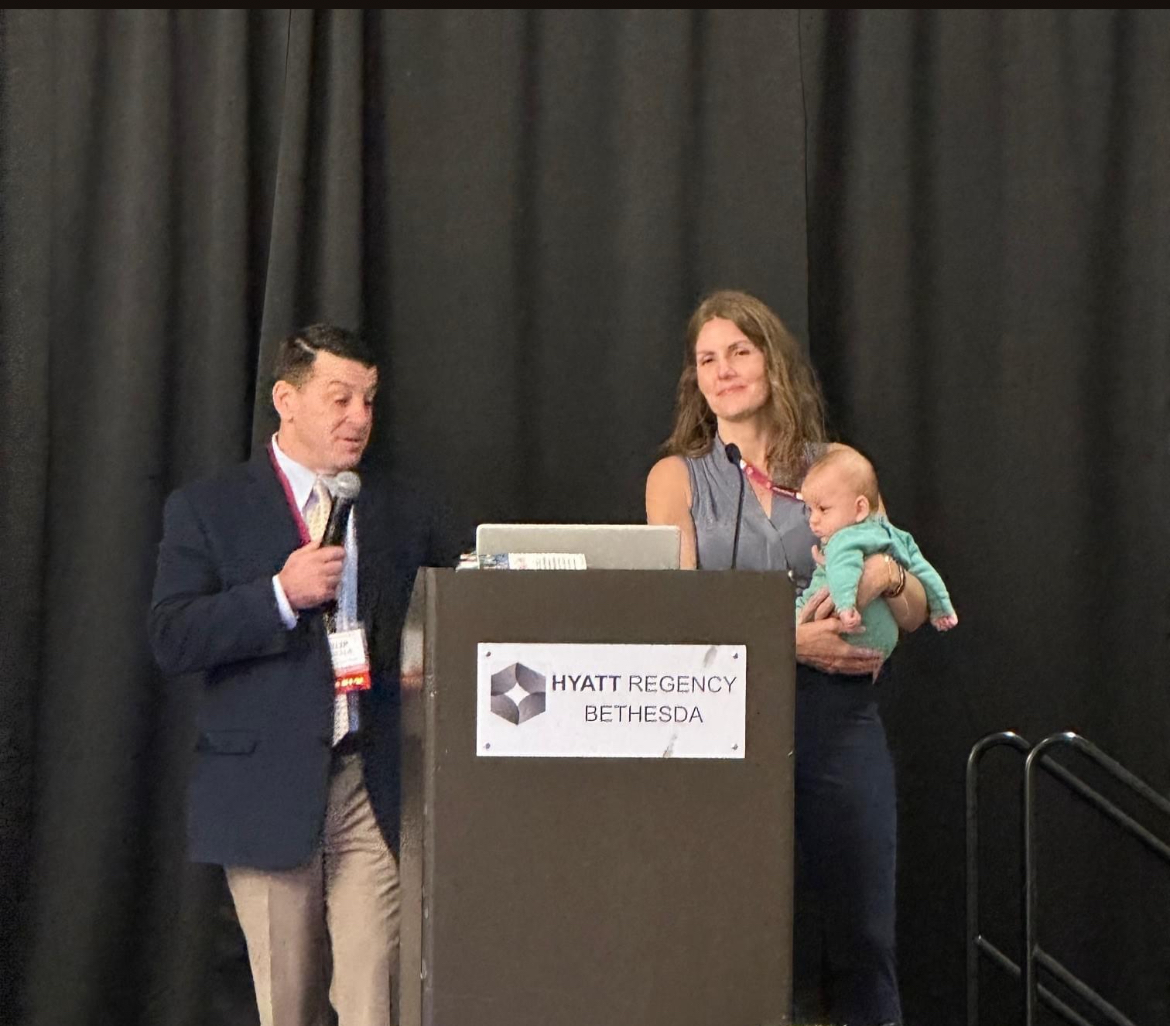By Kat Procyk

Clinicians are widely adopting RhD-positive low titer group O whole blood (LTOWB) to treat life-threatening bleeding based on data that suggests it’s safe and saves lives. However, if a trauma patient later becomes pregnant, it can occasionally lead to complications, including fetal death.
When someone with RhD-negative blood—a less common blood type—is exposed to RhD-positive LTOWB during an emergency blood transfusion, white blood cells produce antibodies to destroy the foreign red blood cells—called alloimmunization. If that person becomes pregnant, those antibodies can cross the placenta and attack the fetus’s red blood cells, which causes hemolytic disease of the fetus and newborn (HDFN). HDFN can lead to anemia or, in severe cases, death.
Philip Spinella, professor of surgery and of critical care medicine, School of Medicine, and codirector of the Trauma and Transfusion Medicine Center in Pitt’s Department of Surgery, said the risk of developing severe HDFN is less than 1% for RhD-negative patients who received RhD-positive LTWOB to treat life-threatening trauma-related bleeding.
Recognizing the balance between potential benefits and risks, practitioners at more than 300 trauma centers across the United States, as well as many prehospital emergency medicine programs, are utilizing RhD-positive LTOWB to prioritize saving lives. Spinella emphasized that while this approach may significantly improve the immediate chances of survival for RhD-negative patients, it also carries a small risk of causing HDFN.
According to multiple surveys, most patients are willing to take that risk.
“Most women say, ‘I want to live even if the potential benefit is even just a 1% increase in survival—give me the blood, and I’ll deal with the risk later,’” said Spinella.
Spinella and colleagues in Pitt’s Department of Surgery are conducting the TOWAR and MATIC-2 trials in both children and adults to understand the optimal treatments needed to improve outcomes. However, results of these trials will take years.
In the interim, Spinella teamed up with the Allo Hope Foundation, a nonprofit organization dedicated to preventing harm, stillbirth and fetal death caused by alloimmunization and HDFN, to improve education about the disease and establish safe treatment guidelines, including for patients where alloimmunization occurs without a history of blood transfusion.
“When a mother and fetus have different blood types, the mother can develop red cell antibodies during pregnancy or delivery if fetal blood mixes with maternal blood,” explained Bethany Weathersby, founder of the Allo Hope Foundation. “This can happen even for mothers with a history of healthy pregnancies.”
Weathersby founded the Allo Hope Foundation in 2019 after losing her daughter, Lucy, to complications of alloimmunization and HDFN at 20 weeks gestation. At the time, doctors advised Weathersby and her husband not to have any more biological children, but she was determined to find solutions—and had three more children after Lucy’s death.
“When I went through this process and heard other women share their experiences, I realized babies were dying preventable deaths,” Weathersby said. “Women don’t have the support, resources or care access they need. So, our hope is that women will receive the right care and have the same outcome I did with my three healthy babies, even patients with severe cases of this disease.”
Molly Sherwood, director of research for the Allo Hope Foundation, said mothers who have the disease report feeling a significant burden to manage a rare high-risk condition.
“It’s heavy knowing that your body is doing this to your child,” said Sherwood, who is also alloimmunized. “It’s also hard to bear the responsibility of having to find the right care for during your pregnancy, delivery and for the first few months of the baby’s life.”
Spinella and leadership from the Allo Hope Foundation have been traveling the world with the Trauma Hemostasis and Oxygenation Research (THOR) Network Foundation to speak to physicians about the use of RhD-positive LTWOB and the follow-up needed to check for alloimmunization when appropriate. The THOR Network Foundation is a public charity organization that Spinella cofounded in 2010 with a mission to improve outcomes for patients with severe bleeding through training, education, research and advocacy.
Working with experts in managing alloimmunization and HDFN prevention in the past, the Allo Hope Foundation developed screening and treatment strategies that are proven to reduce the risk of fetal death from HDFN in the past.
Despite their efforts, the foundation still faced some pushback from physicians.
“When moms try to advocate for their care and ask for these therapies like plasma exchange, frequents scans or intravenous immunoglobulin treatments, some doctors weren’t listening because there wasn’t published evidence for it,” Spinella said. “Doctors will say, ‘There are no guidelines for this, and I’m not comfortable doing it.’ Then the complications sometimes occur, and they could have been prevented.”
Spinella knew he could help provide legitimacy to their efforts.
In mid-November 2024, The THOR Network Foundation and Allo Hope Foundation joined forces with 40 international experts in Bethesda, Maryland, for a meeting sponsored by the U.S. Department of Defense. The group deliberated and voted on 20 evidence-based guidelines aimed at improving outcomes in women with severe bleeding and also reducing the risk of fetal death in alloimmunized women and girls. Guidelines are likely to be published later this year and will cover therapy recommendations for trauma care physicians, obstetricians and maternal and fetal medicine experts and neonatologists.
Weathersby said the development of these guidelines will help not only care providers but also patients who may feel “powerless,” like she did.
“Having this road map and collaboration like ours with Dr. Spinella is crucial for a healthy outcome,” Weathersby said. “I’m just one person, and I felt hopeless often trying to advocate for this care. If we had these guidelines all those years ago, Lucy would be here today.”
